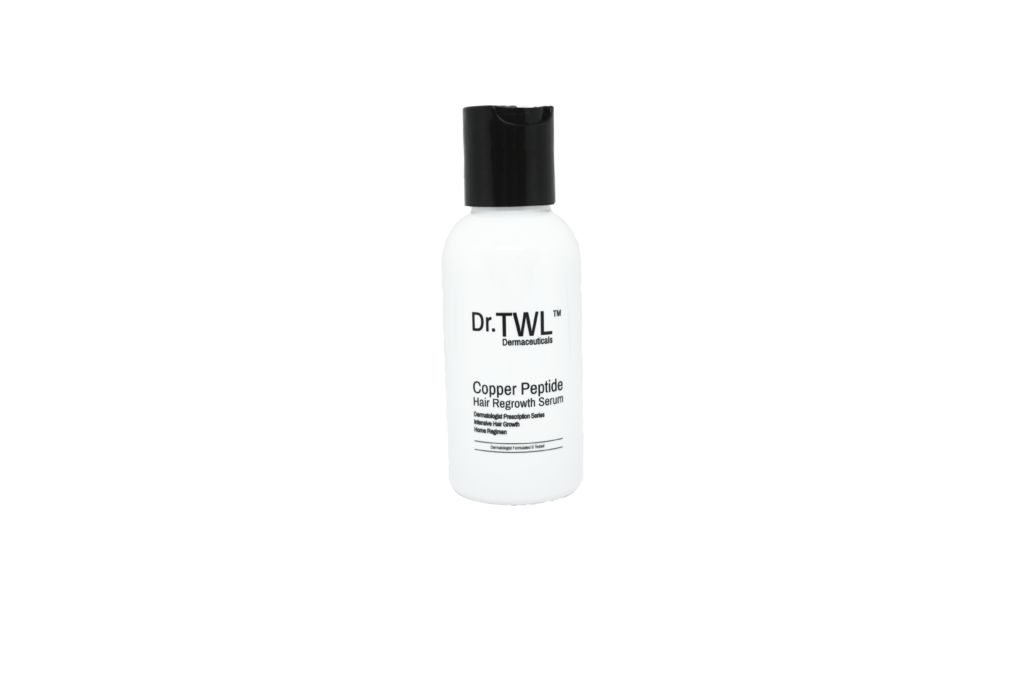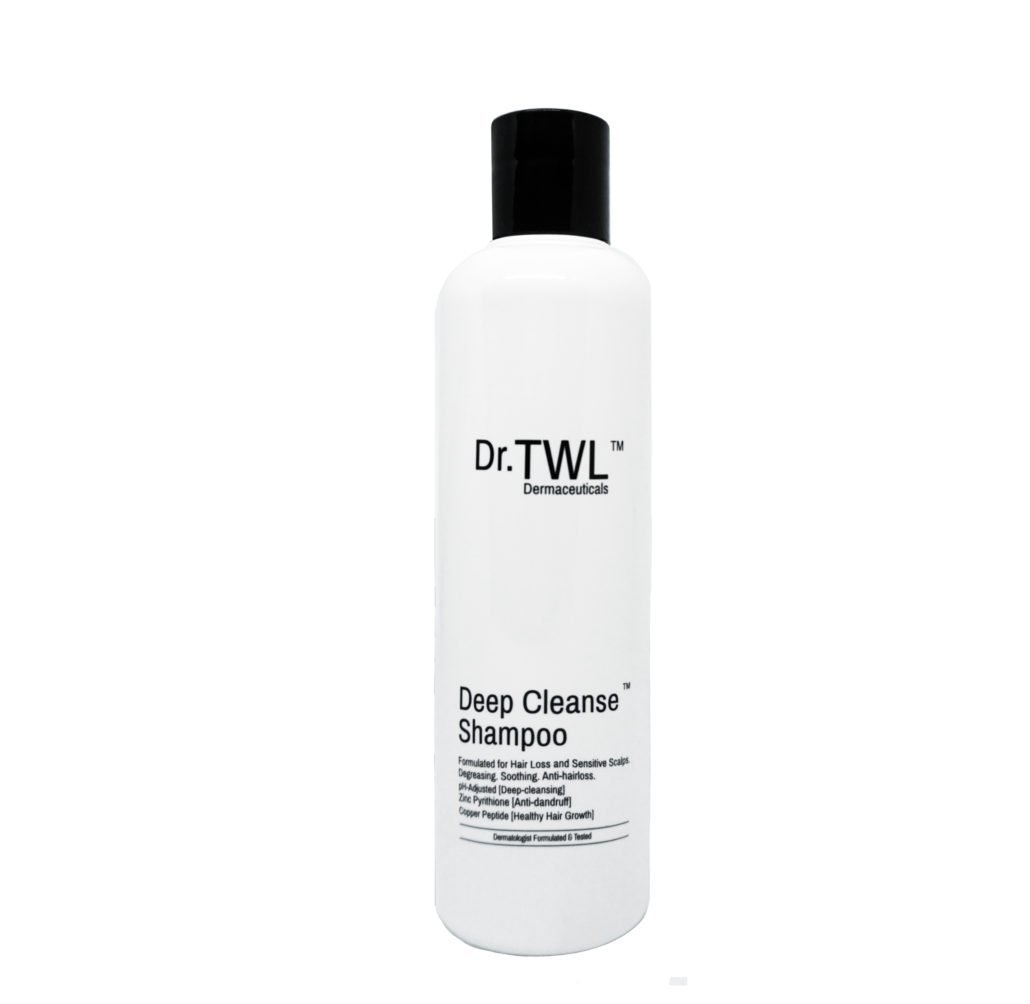Causes of Hair Loss According to a Dermatologist
Hair loss (alopecia) can be a major source of distress and is a common problem. In this article, we share an excerpt from Haircare Bible: A Dermatologist’s Tips on Haircare and Hair Loss by Dr. Teo Wan Lin, Dermatologist at TWL Specialist Skin & Laser Centre. Today we’ll cover the science behind hair loss, possible hair loss causes, and common questions about hair loss.
The Hair Cycle
Normal hair grows through a hair cycle that has three stages. The growth phase, or anagen phase, is the longest phase of the hair cycle, with 80 to 90% of the hair on our scalp in this phase. In the next stage called the catagen phase, the hair bulb detaches from the blood supply and is pushed from the scalp. In the last stage, the telogen phase, shedding occurs as the hair is released, leaving behind an empty follicle.
Each hair follicle is independent, going through the cycle at different stages as the other hairs. Hair problems occur when there is a disruption in the hair cycle.
What Is Hair Loss?
Hair loss also known medically as alopecia can be defined by shedding of hair, leading to an overall thinning that causes the scalp to be visible, or “balding”. Some people may also experience hair problems such as a change in the quality of hair or breakage of the hair shaft, which also results in an overall altered appearance of hair. Hair loss can happen to anyone and everyone under the sun. Everyone, male or female, elderly, middle aged-adults or children is considered susceptible when it comes to hair loss although at each age group, there are different underlying causes that results in the loss of one’s crowning glory.
Is my hair loss normal?
We may experience changes to our hair such as hair loss or thinning as we age, so be sure to distinguish the difference between normal changes and alopecia. Based on traditional textbook recommendations, 100-150 hair strands lost in a day is normal and they usually show up when you brush your comb through or after washing your hair. Bald patches on your scalp or more than 150 strands a day can be classified as abnormal hair loss.
In my practice, I abide by this principle instead in evaluating individuals with hair loss — I ask patients to first quantify the usual amount of hair loss they experience, and then the current amount of hair loss. If there is an increase of at least 20% for a sustained period of at least 3 weeks, I would consider this significant and investigate/treat accordingly, even if they do not fulfil the >150 strands a day principle. The reason for this is that there is significant ethnic variation in hair follicle density, so loss of 100 hairs per day may be “normal” for those with naturally thick hair. On the other hand, individuals with less hair, may find that normal ranges from 30-50 strands instead.
How do dermatologists diagnose alopecia?
There are two major forms of hair loss – scarring or non-scarring alopecia.
Follicular orifices refer to the opening of hair follicles on the surface of skin. If follicular orifices are absent on the scalp, and the underlying scalp has a shiny white color, the hair loss is scarring. If follicular orifices are present, it is a form of non-scarring alopecia.
Non-scarring hair loss is the loss of hair without any presence of scarring in the scalp. Scarring alopecia leaves scar tissues on the scalp and may show signs of inflammation, redness or swelling. The commonest type of non scarring hair loss is androgenetic alopecia, otherwise known as female/male pattern baldness. Patients with androgenetic alopecia have high levels of sensitivity towards androgens, a type of circulating male hormone, on their scalps.
Effects of androgen include miniaturisation of hair follicles by increasing the rate of cell division, shortening the hair cycle and increasing the duration of the telogen phase.
Causes Of Hair Loss
What are the causes of hair loss?
Hair loss can be caused either by an isolated problem or a combination of factors. These include genetics, chronic medical diseases such as a thyroid problem or underlying anemia (low blood count), poor nutrition, etc.
Chemical treatments performed in hair salons, such as hair dyes, bleaching, perming and rebonding hair, can cause a form of hair loss from breakage of the hair shaft.
In the hospital setting, patients undergoing chemotherapy usually suffer from a form of temporary hair loss. This is caused by the hair follicles entering into the resting phase whereby they are shed.
Namely, as our hair growth cycle goes through 3 main phases — active growth caused by anagen, transitional growth caused by catagen and inactive growth and shedding caused by telogen. An impact in any of these stages caused by the above mentioned factors can lead to loss in hair density due to less hair on the scalp present in the growth or anagen phase.
In my practice, some of my patients come to me with their own lists of diagnoses of medical conditions that lead to hair loss. These are usually from a medical website that isn’t written for the layperson. Others research on forums and beauty websites, often boasting causes and cures of hair loss which is simply unscientific.
Common Questions About Hair Loss
I read that stress causes hair loss is this true?
If you’ve just had a stressful period such as relocation or adjusting to a new job, you may be experiencing telogen effluvium. This is when scalp hair is pushed to the end of the growth cycle and falls out, typically 3 months after the stressful event. Illnesses such as high fever, viral infections and crash dieting can also cause telogen effluvium.
My parents have hair loss, does this mean I will develop hair loss too?
Male and Female Pattern Hair loss is one of the commonest causes of genetic hair loss. Due to the hormone testosterone, it is also known as androgenetic alopecia. This is likely if you have a family member with hair loss, especially at an early age. For individuals with inherited hair loss, start on a hair regrowth regimen early on, rather than wait for signs of hair thinning to appear. Several hair growth tonics are available. However, do look for those with proven efficacy, such as minoxidil (ranging in concentrations from 2-5%), copper peptide, and plant-based antioxidants.

The Copper Peptide Hair Regrowth Serum contains Copper tripeptide, a novel molecule that stimulates hair growth. Clinically proven to have similar efficacy to that of 5% minoxidil, stimulating growth without irritation side effects or toxicity.
I have patchy hair loss, should I be worried?
Alopecia areata is an autoimmune condition. The cause of it is unknown although there is some evidence that one’s genetics can influence it as well. This is a non-scarring type of hair loss that results in multiple patches of hair loss. Steroid injections and oral medications can effectively treat it as well. See an accredited dermatologist early.
My hair loss is associated with painful scalp pimples, what is the cause of this?
Bacterial infections of the scalp, such as scalp folliculitis, and more severe forms known as dissecting cellulitis and folliculitis decalvans, cause scarring hair loss if left untreated. Scalp folliculitis needs to be treated with oral antibiotics such as doxycycline, erythromycin, minocycline. These all have anti-inflammatory effects to treat folliculitis.
Can my hairstyle be causing hair loss? What hair ties should I use to prevent hair loss?
Excessively tight hairstyles on the hair (e.g corn-braiding and tight pony-tails) can cause a form of hair loss known as traction alopecia. If you have longer hair and need to tie your hair up, consider using certain types of hair ties. For example, those made from silicone, which have improved hold on hair without increased traction, including ponytail styles during sports.

The Smart Hair™ Elastics stretches and conforms to ponytail to provide support without elastic tension. It prevents snags and breakaway, and is individually polymer-coated for ultimate smoothness. It also does not catch or tug hair while providing firm hold
Another type of hair elastics, in the form of thermoplastic polyurethane in a spiral design. It is also suited for sufferers of hair loss as these are angled to minimise tension and pulling on hair.

The Smart Spiral™ Hair Rings, leaves no mark on hair. It is suitable for all-day wear with advanced polymer coating. It is also has perfectly angled coils that allow for dynamic hair flow with minimal pressure and maximum hold.
Can medications cause hair loss?
If you are on long term medications, it is important to note that some of these can lead to hair loss. Check with your prescribing doctor if you are uncertain. Some medications known to cause hair loss, for example, are anti-cancer drugs and anticoagulants. Nevertheless, stopping your medications on your own without medical advice is not recommended. There are several home use hair cosmeceuticals such as copper peptide and botanical phyto-antioxidants which are safe and effective for self home treatment.

The Copper Peptide Hair Regrowth Shampoo performs deep cleansing of scalp with pharmaceutical grade ingredients to degrease oily scalps. Dermatologist-formulated to calm irritated and sensitive scalp problems.
Approved laser and radio frequency hair devices, which stimulate hair regrowth, are also available for home care. If in doubt, consult with a dermatologist for options on minimising hair loss and promoting hair growth.

The Raser™ Hair Regrowth Comb incorporates Diode Laser + Radiofrequency+ Red Photon + EMS + Massage with Ozone Sterilization. It is an effective home care treatment for hair loss.
Do you have other scalp symptoms accompanying your hair loss?
Do you have an itch, redness or pain on your scalp? An undiagnosed inflammatory scalp disease such as seborrheic dermatitis, scalp eczema or psoriasis can be responsible.
Seborrheic dermatitis is caused by a yeast known as malassezia furfur in an individual with excess production of oil. It can be worse in tropical and humid climates such as Singapore. Malassezia under normal conditions does not cause disease of the skin or scalp. Under humid environments, it can cause moderate to severe scalp inflammation and flaking. When severe, it can even cause hair loss. If you have tried over the counter anti-dandruff shampoos and are not better, promptly seek the care of an accredited dermatologist rather than self medicate or DIY.
Scalp eczema, an excessively dry scalp/skin condition is another cause of scalp inflammation. If one has a family history of psoriasis, scalp psoriasis can also cause scaling on the scalp similar to dandruff.
If you had contact with a cat or dog with ringworm infection, have your scalp and skin checked by a dermatologist. Animals carry a type of fungal infection known as dermatophyte infections which are contagious. This type of scalp inflammation is commoner in children. It usually presents as a red, scaly and itchy patch with hair loss.
Hair loss can occur due to one or more of these factors discussed above. Dermatologists evaluate by taking a thorough history, conducting a physical examination and may recommend laboratory tests and microscopic tests before diagnosis. They also are trained to distinguish between scarring alopecia, a permanent type of hair loss, and may also offer a scalp biopsy, for microscopic samples of the scalp.









Leave a Reply
Want to join the discussion?Feel free to contribute!